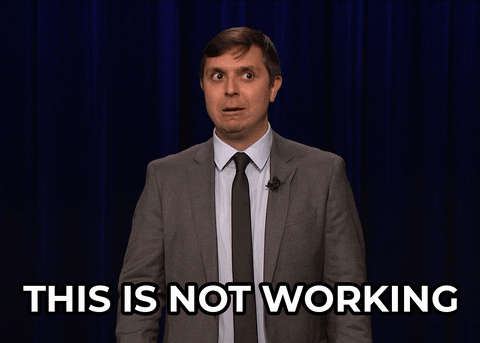Why haven't climate change discussions moved the needle on climate action?

Climate change communication has failed to create mass acceptance even of the science of climate change, let alone what we need to do to fix the problem.
So why has this happened? And how do we improve messaging on climate change to inspire people to take action?
The Old Approach

One stumbling block has been the approach experts have taken to informing people about climate change.
Climate advocates used to think people just needed more information and education about climate change. This is called the “deficit model” and it assumes that:
...the public are ‘empty vessels’ waiting to be filled with useful information upon which they will then rationally act.
If experts tell us, for example, that humans have caused the climate to change, and we need to eliminate greenhouse gases immediately or we'll face an apocalyptic scenario, that should be enough to motivate us to act on climate change, right?
But this is a simplistic "one size fits all" view of the public that fails to understand the social and psychological factors that truly drive people towards change.
A New Approach

Decades of inaction proved that the deficit model failed to inspire climate action. Even though tons of information and education on climate change was made available to the public, it didn't inspire people to take the action necessary to slow climate change significantly.
It's now clear that climate advocates need a new and better approach to communicating climate change. It's not enough for people to just know about climate change. They have to feel something about climate change before they're willing to act on it.
In the last decade, researchers and practitioners have considered how to move people emotionally. This means coming up with new ways to tell the story of climate change so it resonates more deeply with audiences.
Appeal To Emotions
Advocates for this new approach encourage even really knowledgeable scientists to think about climate change communication as a discussion rather than a lecture.
These advocates believe that appealing to people's emotions is much more effective than appealing to their short-term interests.
They encourage communicators to consider:
emotion — Use words, images, and stories that will stir up feelings in your audience.
values — Connect climate change to the things people care about.
identity — Tie climate change to how people see themselves, their community, and their way of life.
A Message In Action
Imagine you're a climate advocate and you're speaking to a farming community in Wyoming. You want to explain that climate change is responsible for extreme drought conditions that threaten their way of life.

How would you use emotion, values, and identity to help get your message across?
Emotion
You have an incredible community here. But if droughts get worse, your community will look very different in the future.
Values
Your community prides itself on providing food for hardworking American families. Droughts will make it more difficult for you to succeed at the thing you do best.
Identity
What will happen to your community if farming is no longer a viable option?
Take Action

It's time to change the way we talk about climate change.
Click the links below for more Climate Communications Bytes!
Byte 1: How does misinformation derail climate change conversations?
Byte 2: 7 things people get wrong about climate change
Byte 3: 6 myths we need to confront if we want a clean energy future
Byte 4: Why we need a new approach to climate change conversations
Byte 5: Why aren't people more worried about climate change?
Byte 6: Can I talk to people about climate change even if I'm not an expert?
Byte 7: 5 things to consider before you start a conversation about climate change
Byte 8: 6 ways to have better conversations about climate change
Byte 9: What is the climate change “spectrum of engagement”?
Byte 10: How will the "messaging triangle" help me talk to people about climate change?

These Bytes were created with the assistance of Generation Climate.

Your feedback matters to us.
This Byte helped me better understand the topic.
